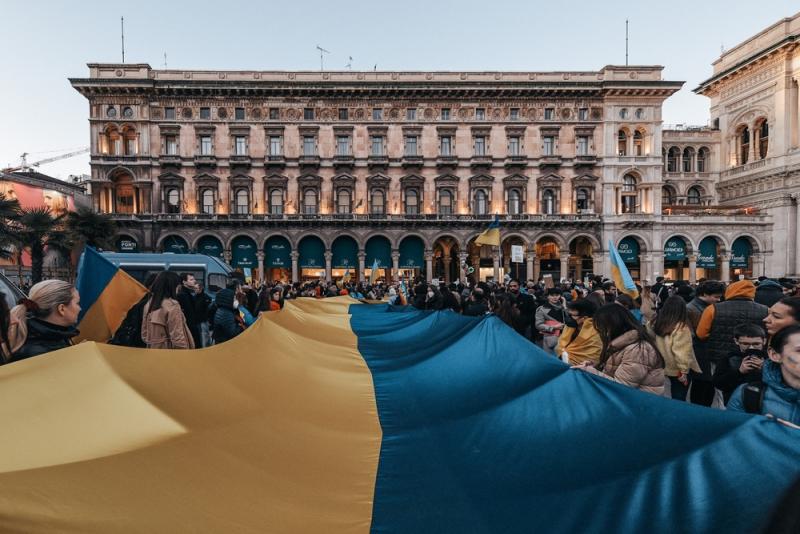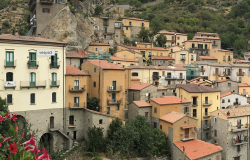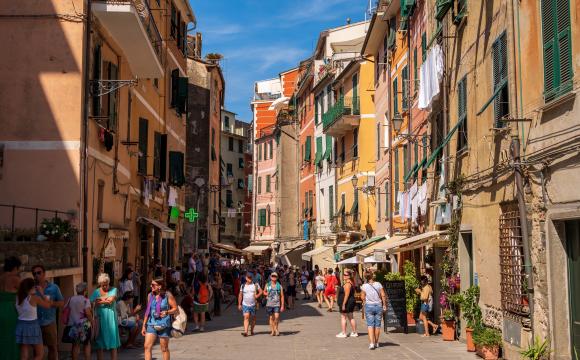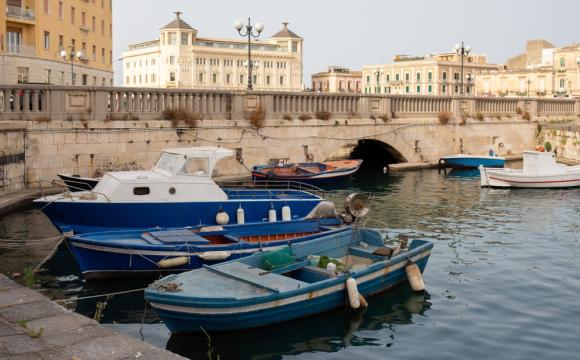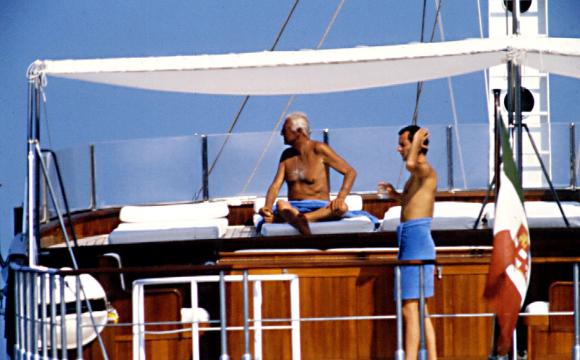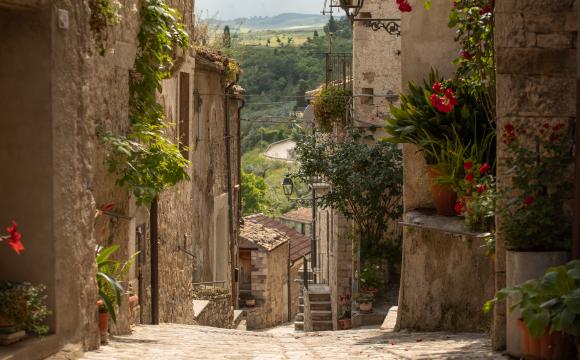It was difficult for Yaryna Shendryk to hold back tears as she recounted fleeing with her three children from her home in Sumy, Ukraine, one year earlier, spending days sleeping on church floors, waiting for an elusive bus that would transport the family to Italy.
“We were scared and exhausted. We didn’t know what was going to happen,” Shendryk said of their first days in Italy. Her fingers wrung a tissue, but her voice was as icy as the wind blowing through Milan’s Piazza Tre Torri outside. “It has been really difficult, but now we are settled.”
It was Saturday, February 25 — a day after the one-year mark from the start of the Russian invasion. In a coffee shop just inside the CityLife Shopping District, Shendryk shared her story as she sipped a cappuccino alongside her daughter Sofia, 10, and friend, Valentina Shkroba, who translated from Ukrainian to Italian.
A migrant crisis not seen since World War II
Shendryk and her family are some of the 169,837 refugees who have reached Italy under temporary protection as of January 27, 2023, according to UNHCR, the UN refugee agency. Most are women and children. This form of protection was part of the European Union’s response to the crisis just days after the war started, applying the temporary protection directive introduced in 2001 to Ukrainians fleeing the conflict.
Those who stayed put joined a robust population of Ukrainians already living in Italy: 230,373 as of January 1, 2022, according to the Italian National Statistics Agency. That makes Ukrainians the third largest non-European Union nationality represented among migrant groups in Italy.
Navigating a foreign system
With a bit of patience and a lot of determination, Yaryna was able to get everything sorted. Through her community — both those she knew before and those she met after arriving — she was able to find a stable job as a house cleaner (back in Ukraine she was a doctor in a medical laboratory), secure an apartment and find school, work and extracurricular activities for her children.
“I’m doing gymnastics, music, drawing, dance. Before it was difficult, but now I speak Italian,” Sofia pipes up in almost accent-free Italian.
They’ve begun to establish a new life in Italy, despite all the challenges: language barriers, residency permits and longing for home.
But it was far from easy. This is Italy, after all: Government response to the influx of refugees has been slow, pushing many Ukrainians to look elsewhere for a fresh start.
This was a common narrative among Ukrainians who shared their stories. Many got caught up in Italy’s famously labyrinthine bureaucracy, citing appointments at government offices, endless document-chasing and long wait times. Even in emergency situations, Italy struggles to untangle itself from historically complex processes.
Finding community

But one thing was consistently clear: The people in Italy showed up, offered assistance and welcomed Ukrainians. Those who have stayed have found kindness and a community of other Ukrainians who mobilized to support new arrivals.
“Italy has always been a wonderful safe haven for me,” said Shkroba, Shendryk’s friend, who has been in Italy for more than 10 years. “I have tried to show what Italy is. But they have experienced psychological trauma,” she said, gesturing at Shendryk and her daughter. “They arrived wounded.”
Shkroba met Shendryk at a demonstration last year, and they have been close ever since. Shendryk, reeling from her experiences, found constant support from her Italy-inveterate new friend. She has continued to participate with her children in protests, cultural events and associations, like RoDoSy, a development center for adults and children, part of SupportUAchildren APS, a charity established in Italy in 2014. The association provides training and language courses, hosts cultural events and provides assistance for Ukrainians to help them find community and navigate Italian society.
But unfortunately a community won’t pay rent. One of the biggest setbacks for families seeking homes, said Zhanna Chernega, a Ukrainian who volunteers for SupportUAchildren APS, is an Italian law that makes it challenging to evict families with minors even in the case of missed rent. In theory, the law makes sense, but like so many other catch-22s endemic to Italian bureaucracy, in practice, it only generates more problems. The law should protect minors, but the problem is upstream, when landlords refuse renters because they might have an unstable situation. And refugees with children fall into that category.
Is there more reliable assistance elsewhere?
By September 2022, about 60 percent of the people who were coming to SupportUAchildren APS for assistance had left for other countries or returned to Ukraine, according to Chernega. She understands the importance of this community for those who stay, however: “We have worked hard to provide sessions of mutual support for women, who have built friendships this way,” Chernega said. “We have created a Ukrainian oasis.”
Olena Panchenko was one of those who moved on from Italy. She and her husband, their three sons under 10, and Panchenko’s mother left their home in Kharkov six days after the war started. As Panchenko posted about the tragedy they were experiencing on Instagram, people reached out to help. One of these was an Italian friend who said he could put them in touch with someone who could host them temporarily.
Social media appeals helped Panchenko and her family find a housing solution
Panchenko and her family spent nine days driving from eastern Ukraine to Milan, where they were welcomed by Nancy Fina, an American woman who has been in Italy for 40 years. She put them up in her country home near Piacenza for three months, enlisting the help of friends and neighbors.
For the first two months, Panchenko and her family were mostly crying and waiting: for promised economic assistance, for the war to end, for life to restart.
“We were like seagrass, moving left, moving right,” Panchenko said. “We were trying to understand our life. There were no feelings.”
Eventually, they found the system in Italy too complicated and looked elsewhere for more consistent help. They received visas from the UK and moved to Scotland, where they have been living for the past nine months.
“This country is not as beautiful and tasty as Italy, but because the government helps us, it’s a good start for new life,” Panchenko said.
